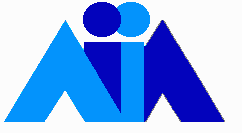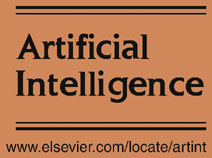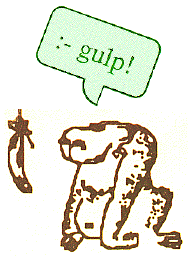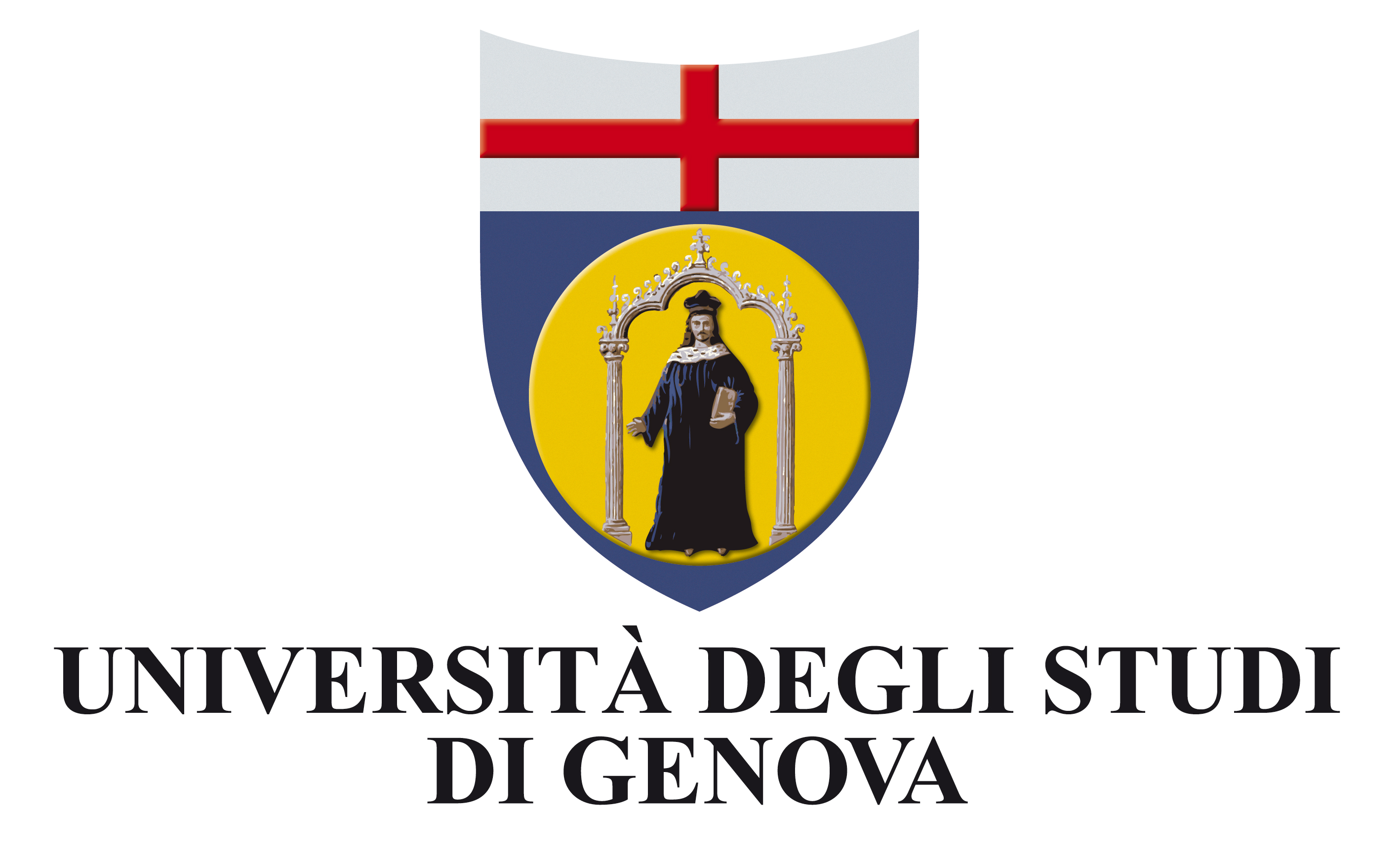
School
Attention! The school will take place in two different locations. On June 29th and 30th it will take place at DIBRIS, Via Dodecaneso 35, whereas on July 1st it will take place in Stradone Sant'Agostino 37. Directions (in English) for DIBRIS are available at http://www.dibris.unige.it/sedi/sede-di-valle-puggia. The Aula Benvenuto is in the historical Center of Genoa, close to the Sant'Agostino Metro Station. Directions (in Italian) can be found at http://www.arch.unige.it/inf/paginfcartina1.htm#iniziodoc.
Accommodation
Students will stay in Casa Paganini (Muhammad AlamElDien, Federico Capuzzimati, Stefano Tognazzi, Federico Igne, Giacomo Da Col, Francesco Di Cosmo, Andrea Pazienza, Alberto Molinari, Raffaele Olivieri, Daniele Francesco Santamaria, Arnaud Nguembang Fadja) and in the Hotel Vittoria & Orlandini (Andrea Peano, Riccardo Zese, Carlo Taticchi, Roberto Amadini, Olmo Morandi, Andrea Zucchellini, Nadeem Qaisar Mehmood, Elem Guzel Kalayci, Stefania Monica, Emanuele De Angelis, Giuseppe Cota, Ferdinando Fioretto).
Casa Paganini is located in Piazza Santa Maria in Passione 34 and can be easily reached from Piazza Sarzano (Sant'Agostino/Sarzano metro station).
To reach the location of the school's first two days (DIBRIS) from Casa Paganini you can take the metro from Piazza Sarzano to Brignole and then follow the directions.
The conference location (Aula Benvenuto, Stradone Sant'Agostino 37) is at walking distance.
The Hotel Vittoria e Orlandini is located in Via Balbi 33-45 and can be easily reached from Stazione FS Principe or Principe metro station or Darsena metro station.
To reach the location of the school's first two days (DIBRIS) from the Hotel Vittoria e Orlandini you can take either the metro from Principe or Darsena to Brignole or the train from Principe to Brignole and then follow the directions.
The conference location (Aula Benvenuto, Stradone Sant'Agostino 37) can be reached by metro from Principe or Darsena to Sant'Agostino/Sarzano. The conference is at walking distance from the metro station. You can also walk from the hotel to the conference venue (20 minutes stroll).
Program
Teaching material
The slides of the talks are available here.
Partecipation
Attending the school only requires to be registered to the GULP association (10 Euros for students and researchers without a tenure track), to be paid to the organizers; this fee covers the attendance to the school social dinner on June 30th and to the conference on the 1st, 2nd and 3rd of July. It does not cover the conference social dinner (student fee: 25 Euros).
Registration
You may register until June, 5th: http://cilc2015.dibris.unige.it/index.php/registrazione-registration
Abstracts
Prolog for beginners
An afternoon for familiarizing with Horn clauses, Herbrand models, unification, SLD resolution, simple examples of logic programs. This session is mainly conceived for those students who have no or limited background on logic programming.
Constraint Logic Programming
Constraint Logic Programming (CLP) is a class of logic programming languages devoted to solve constraint problems. Each language embeds a solver; popular solvers enable the user to solve problems with finite domains, continuous domains, intervals, sets, etc. just to name a few. CLP languages include powerful propagation algorithms developed in various research areas, such as artificial intelligence, graph algorithms, operations research. An impressive number of applications have been developed, including scheduling, planning, timetabling, routing, placement, configuration problems. This tutorial will give the basics of CLP, with particular emphasis on CLP(FD), the class dealing with finite domains. It will describe some applications and popular techniques used to solve hard combinatorial problems.
Developing Applications with Answer Set Programing: Language and Tools
Answer Set Programming (ASP) is a powerful language for knowledge representation and reasoning, that has been developed in the field of nonmonotonic reasoning and logic programming. The high knowledge-modeling power of ASP, together with the availability of efficient ASP systems, have implied a renewed interest in this formalism in recent years. ASP has been applied in many scientific applications, ranging from Artificial Intelligence, to Knowledge Management and Information Integration. The tutorial will focus on declarative problem solving with Answer Set Programming (ASP). The audience will walk away with: an understanding of the foundations of ASP; a methodology for developing ASP programs; the knowledge of systems and development tools for ASP. On the practical side the focus is on ASPIDE and JDLV. ASPIDE is an extensible integrated development environment for ASP; while JDLV is a plug-in for Eclipse, integrating ASP in a well-assessed development platform which enables a bilateral interaction between ASP and Java. A number of real-world applications of ASP is also illustrated, including systems for work-force management and e-tourism.
Declarative Agent Languages and Technologies
The tutorial aims at giving a brief overview of the research done in recent years in declarative languages and techniques for autonomous agents and multi-agent systems. Particular emphasis will be given to computational-logic techniques that lend themselves to not only describe and specify agent behaviour, but also to obtain operational models.
Exploring Life through Logic Programming
The tutorial offers a broad overview of how logic programming, and in particular Answer Set Programming / CLP(FD), can be used to model and solve some popular and challenging classes of problems in the general domain of bionformatics. In particular, the areas of application we will cover will be Genomics studies, such as Haplotype inference and Phylogenetic inference; Structural studies, such as RNA secondary structure prediction, Protein structure prediction, and in Systems Biology.
The tutorial covers a brief introduction to biology and bioinformatics and presents some working (toy) examples.
A Brief Review of Parallelism in Logic Programming - Back to the Future
Since their foundations, declarative programming paradigms have hold the promise of facilitating the exploitation of the computational power of parallel machines. This promise originates from the lack of a rigid control flow structure in declarative programs and the common reliance on mathematical variables (single-assignment). Both these features appear to reduce the presence of sequential dependencies, more easily exposing concurrency and potential parallelism. Nevertheless, this promise has been only partially met over the years, demnstrating that the flexibility of declarative programming in terms of exploitation of parallelism requires solving non-trivial research challenges.
In this tutorial, we will focus on one declarative paradigm (logic programming) and navigate through the history of parallel logic programming, from its inception to present days. The main goals are to recognize the challenges to be resolved to create effective parallel logic programming systems; we will analyze successes, pitfalls, failures, and important lessons learned. We will also characterize the current and most promising lines of research. The tutorial will be organized in a traditional lecture format, with a few breaks among components to allow the audience to ask questions and share experiences.
The tutorial will be accessible to anyone with a minimal understanding of logic programming and its execution models.
Past, Present, and Future of Interval Temporal Logics
The tutorial aims at giving an account on research in interval temporal logics, with a particular attention to the fragments of Halpern and Shoham's modal logic of time intervals. Interval-based temporal reasoning naturally arises in a variety of AI areas, including knowledge representation and reasoning, temporal planning and maintenance, temporal constraints, theories of actions and events, and event processing. Moreover, it plays a significant role in other fields of computer science, such as theoretical computer science, temporal databases, and computational linguistics. The goal of the tutorial is to give an up-to-date and comprehensive description of the state of the art in the field of interval temporal logics. We will illustrate methods and techniques that have been used to deal with the most relevant problems, namely, expressiveness, decidability and complexity of the satisfiability and model checking problems, and reasoning techniques.
We will also describe tableau-based methods for interval temporal reasoning. We will conclude the tutorial with a short list of open problems and current research directions.
There are no specific prerequisites, apart from some familiarity with the basics of (propositional) logic and complexity theory. Background knowledge about modal and (point-based) temporal logics would help, but it is not necessary.
Biografie
Agostino Dovier
Agostino Dovier obtained his PhD from the University of Pisa with a thesis entitled "Computable Set Theory and Logic Programming". He is associate professor at the University of Udine where he coordinates the CLP LAB http://clp.dimi.uniud.it/. His research interests include Logic and Constraint Programming Languages design and applications, Computational Biology, Parallel Architectures, Action Description Languages, Graph Algorithms, and Computable Set Theory. He is author or coauthor of more than 110 international publications and supervisor of roughly 100 bachelor, master, or PhD theses. He coordinated several research funds (FIRB, PRIN, INdAM, ...) and served as chair or in the PC of more than 70 international conferences and workshops, as EC member of the italian association for logic programming GULP and of the international association for logic programming ALP. He is currently (co) editor of the ALP newsletter and president of the GULP association.
Alessandro Dal Palu'
Alessandro Dal Palu' received his Computer Science degree cum laude in 2002 from the University of Verona. He received his PhD in Computer Science in 2006 from the University of Udine. In 2005 he became researcher at the University of Parma, Mathematics Department. Since 2014 he is Associate Professor at University of Parma, Mathematics and Computer Science Department.
His research interests span across problem solving and bioinformatics: programming methodologies to solve complex problems (CLP, ASP, ILP, SAT); protein structure conformational analysis, RNA alignment, tertiary structure reconstructure from low resolution images; computational complextity and data structures optimization; multi-dimensional analysis of medical images; parallelism and GPU computing.
He received the Italian 2007 GULP (Gruppo Ricercatori e Utenti Logic Programming) award for best Ph.D. thesis on computational logics.
In 2010 he received the ICLP best paper award with the co-authored paper CLP-based protein fragment assembly.
He is part of the program committee of international conferences and organized several international workshops on constraint programming and bioinformatics. He participated in various national research projects and in 2011 he was the national coordinator of Italian Indam-gncs project on GPU applications.
Marco Gavanelli
Marco Gavanelli graduated in Computer Science Engineering in the University of Bologna, Italy, in 1998, and obtained his Ph.D. in Information Engineering in 2002. He was visiting researcher in IC-Parc, Imperial College, London, in 2001. He is currently Associate Professor at the Department of Engineering of the University of Ferrara, where he teaches Foundations of Computer Science and Applications of Artificial Intelligence. His research activities are focused on constraint programming, logic programming languages, and artificial intelligence. His research has covered implementation, application and theoretical aspects. He applied constraint and logic programming to problems in hydraulic engineering, nurse scheduling, routing, artificial vision, multi-objective optimization, abductive reasoning, agent verification, environmental assessment, regional energy planning. He was conference organizer of CPAIOR 2010, has organized 8 workshops, two doctoral consortia, and is currently organizing conference AI*IA 2015. He has been guest editor of international journals, such as the Journal of Algorithms, Fundamenta Informaticae, Annals of Mathematics and Artificial Intelligence, AI Communications. He was invited to give seminars and talks in conferences (CONAIS 2010, IJCAI 2013). He won the best paper award at the 27th International Conference on Logic Programming, and the Prolog programming competition in ICLP 2008. He is author of more than 60 papers on journals, book chapters, and conference proceedings. He took part to national and international projects, and he is scientific coordinator of the UniFE research unit in UE project STREP FP7 "ePolicy: Engineering the POlicy-making LIfe CYcle". He is member of the executive board of GULP since 2006, and is currently secretary of the association.
Viviana Mascardi
Viviana Mascardi is associate professor of Computer Science at the DIBRIS Department of Genova University. She co-authored almost 100 publications in national and international conferences and journals on research topics that include:
-- Modeling, verification, rapid prototyping, and development of platforms for complex and distributed systems (multiagent systems).
-- Agent specification and implementation languages.
-- Semantic Web and ontologies.
For each of the above themes, applications on different domains, often in collaboration with industrial partners, have been designed and developed. She coordinated the IndianaMAS Futuro in Ricerca research project funded by MIUR (2012-2015) e she is involved in National and European projects.
Angelo Montanari
Angelo Montanari is full professor of Computer Science at the Department of Mathematics and Computer Science of the University of Udine. From October 2007 to October 2009, he was the Head of the Department of Mathematics and Computer Science of the University of Udine, and from October 2010 to September 2013, he was the Coordinator of the undergraduate and master courses in computer science at the University of Udine. Since January 2013, he is the Coordinator of the Evaluation Unit of the University of Udine. His major research interests are in temporal logics, and their application to specification and verification of reactive systems, automata theory, game theory, temporal knowledge representation and reasoning, and spatial and temporal databases. He got his PhD at the University of Amsterdam on September 1996 with a dissertation on logics for time granularities, written under the supervision of prof. Johan van Benthem. He contributed more than 175 scientific papers (journals, conferences, book chapters, workshops). He is/was involved in a number of national and international projects. In particular, he was the Italian member in the steering committee of the ESF project "Games for Design and Verification - GAMES (2008-2013)". Since many years, he acts as a referee for leading international journals and conferences in computer science. He has also been a referee for national and international (European Community) projects. He is/was involved in the program committee of many international conferences on temporal logic and, more generally, on temporal representation and reasoning in theoretical computer science, artificial intelligence, and databases. In various cases, he (co-)chaired the program committee. He is teaching, and taught in the past, various courses on databases, algorithms, logics, and automata theory. He also taught courses on topics related to temporal logic and automata theory at international schools. He has been the supervisor of 9 PhD students in Computer Science.
Enrico Pontelli
Enrico Pontelli is a Regents Professor and Associate Dean in the College of Arts & Sciences at New Mexico State University. His areas of research interest include logic and constraint programming, reasoning about actions and change, bioinformatics, assistive technologies, and computer science education. His research has been supported by several funding agencies, including the National Science Foundation and the Department of Education. He is the recipient of a NSF Career award and a Manasse scholar, and author of over 250 peer-reviewed publications.
Francesco Ricca
Francesco Ricca is Associate Professor at the Department of Mathematics of the University of Calabria, Italy. He received his Laurea Degree in Computer Science Engineering (2002) and a PhD in Computer Science and Mathematics (2006) from the University of Calabria, Italy. He is interested in declarative logic-based languages, and in particular on the issues concerning their practical applications: system design and implementation and development tools. Francesco Ricca is co-author of more than 70 refereed articles published in international journals, collections, and conference proceedings.
Paolo Torroni
Paolo Torroni (DISI), is Assistant Professor since 2004. His area of expertise is Artificial Intelligence, with a focus on computational logics, reasoning with uncertainty, autonomous agents and multi-agent systems. He authored more than 100 refereed publications, with an H-index of 23 and an i10-index of 47 (Google Scholar). He received 2 best paper awards, was actively involved in many national and EU projects since FP5, and spent research periods at Lisbon's IST, Imperial College London, and Uppsala University. He gave several keynote talks, seminars and conference tutorials. He served in over 100 committees, for international conferences, study programmes and scientific associations. He was expert evaluator for the EC (ICT FP7/STREP), Switzerland (COST), Luxembourg, (FNR INTER), Chile (FONDECYT) and other national funding programmes. He is an associate editor for Fundamenta Informaticae.
 |
 |
 |
 |
 |
 |
 |
 |
Si ringrazia inoltre la Scuola Politecnica dell'Università degli Studi di Genova.
L'evento è patrocinato dall'Università degli Studi di Genova.

